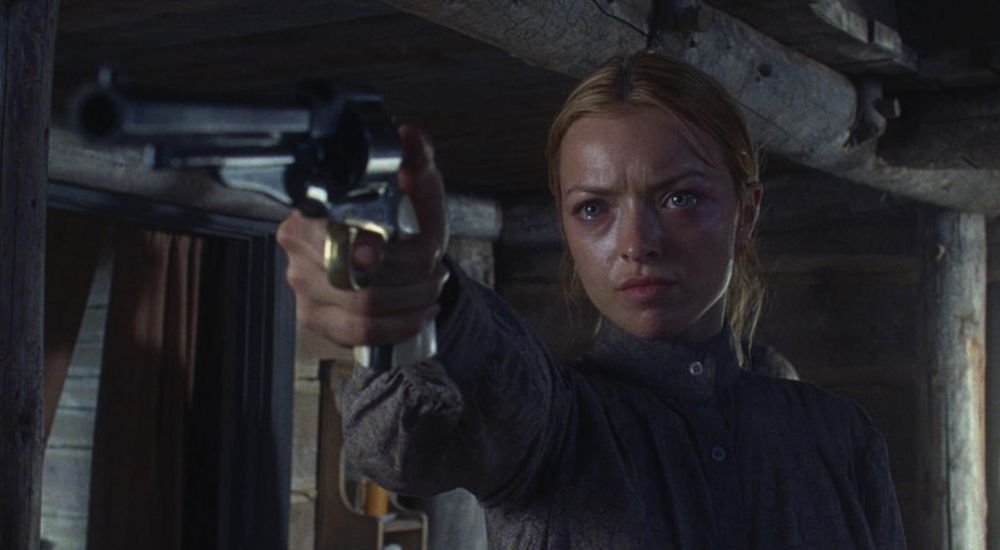“Where’s it all begin? Violence. The gun. The knife. The axe. How’s it born? How’s it start? We all just want to make it. To exist.”
And with that nonsensical, McConaughey-esque voiceover, Luke Wilson’s grizzled lawman Josiah introduces us to the bleak, hopeless world of Outlaws and Angels—a western-meets-home invasion thriller that shifts identities faster than you can say, “Well, I’ll be damned.”
The new indie flick from writer-director JT Mollner follows three disparate groups that all converge on a farmhouse in New Mexico in 1888: a troubled family of four, a murderous band of ragtag bank robbers, and Josiah and his gang of bounty hunters. After a bank robbery, the robbers flee into the desert, led by their scarred boss Henry (Chad Michael Murray). When they learn that Josiah and his men are hot on their trail and eager to claim a large bounty, Henry and his dim-witted partners hook up with the Tildons, a fervently religious family led by an overbearing mother (Teri Polo) and a sexually sadistic father (Ben Browder).
The lone beacon of hope in this dark land is Florence Tildon (Clint Eastwood’s daughter Frances Eastwood), one of the two daughters of those fanatical parents. When she’s not busy being bullied or abused by her God-fearing family, Florence does double duty as the film’s most interesting and most likable character. Of course, this means that the dashing, dastardly Henry will inevitably corrupt and inspire her to take revenge on her entire family, at which point Outlaws and Angels descends into a fever dream of violence, depravity, and more violence.
The limited settings and buckets of gore make it tempting to compare Mollner’s debut feature to Tarantino’s Hateful Eight. But to do so would be unfair to both films: Outlaws and Angels is significantly less fun than Tarantino’s latest, but it’s not for lack of trying. Mollner is clearly ambitious, and some of his visuals evoke those of Ford, Leone and Peckinpah.
However, he doesn’t have the pen or the players that Tarantino had, and at any rate, Outlaws and Angels feels more like a mix of Straw Dogs and Michael Haneke’s infamous Funny Games—an persistently violent tale where ethical lines are nonexistent and the only sign of angels is in the title. If only the film’s cast was up to the task of telling that kind of tale.
Putting a scar on Chad Michael Murray’s face doesn’t make him scary, because hey, it’s still Chad Michael Murray. And even though Eastwood does her best with the material, the script doesn’t give her character enough focus or direction. Instead, Mollner seems to lose himself in the big ideas behind the story, and as a result, the execution gets forgotten at the side of a dusty road.
Hence, Outlaws and Angels feels like an unfinished film. Wilson’s intermittent narration may imply some larger themes are at work here, but in the end, his raspy voice proves nothing more than white noise.

